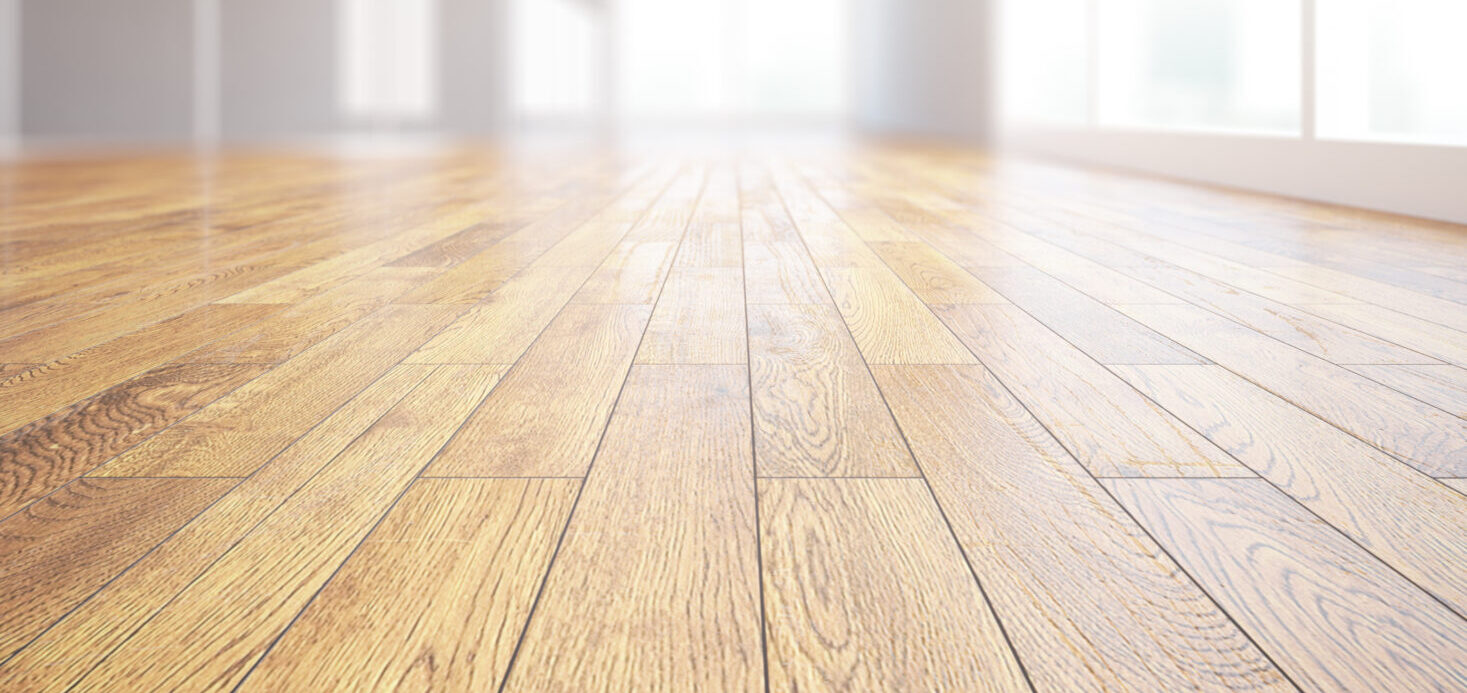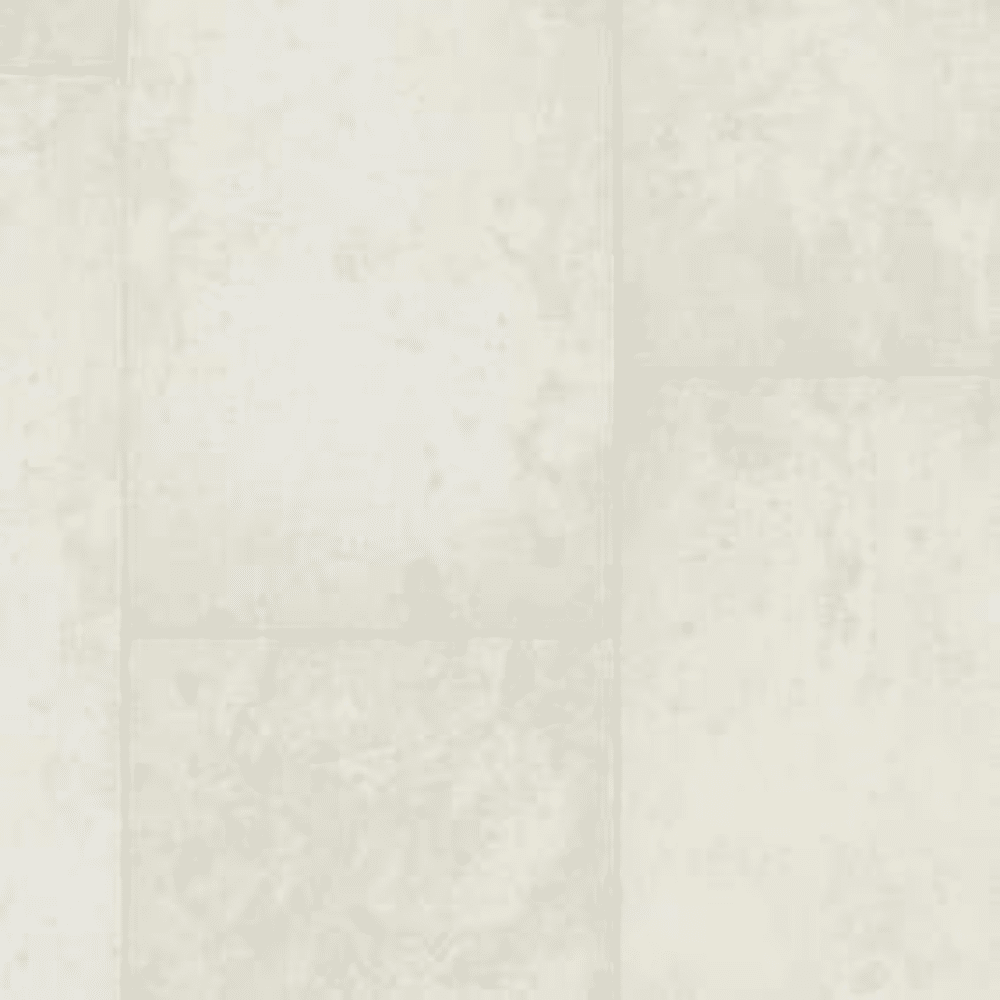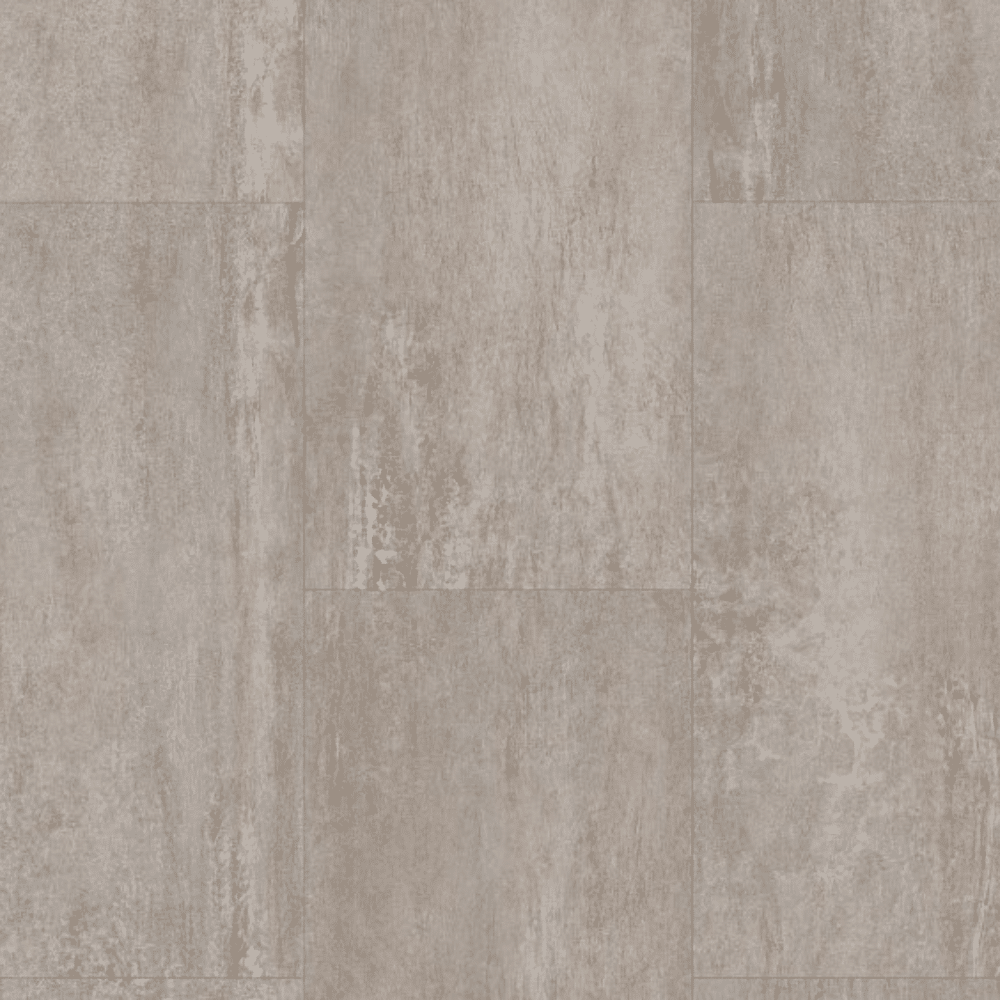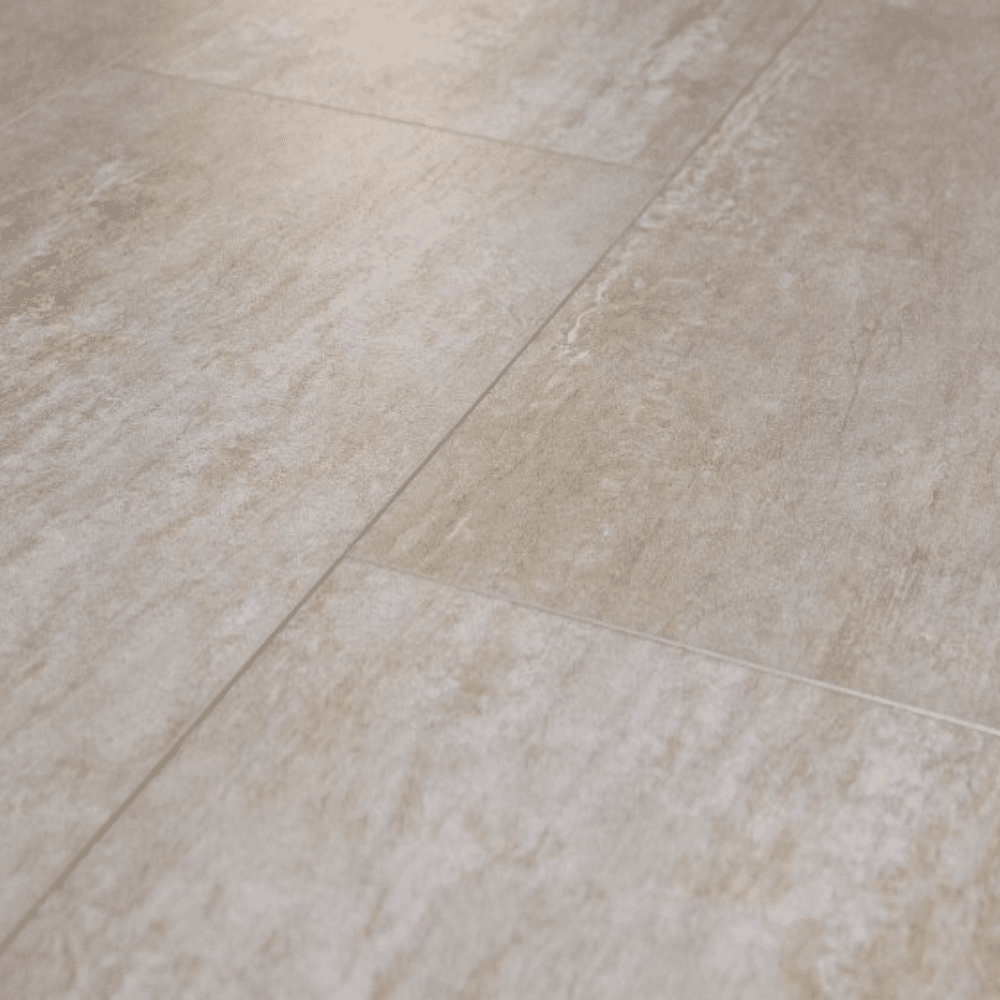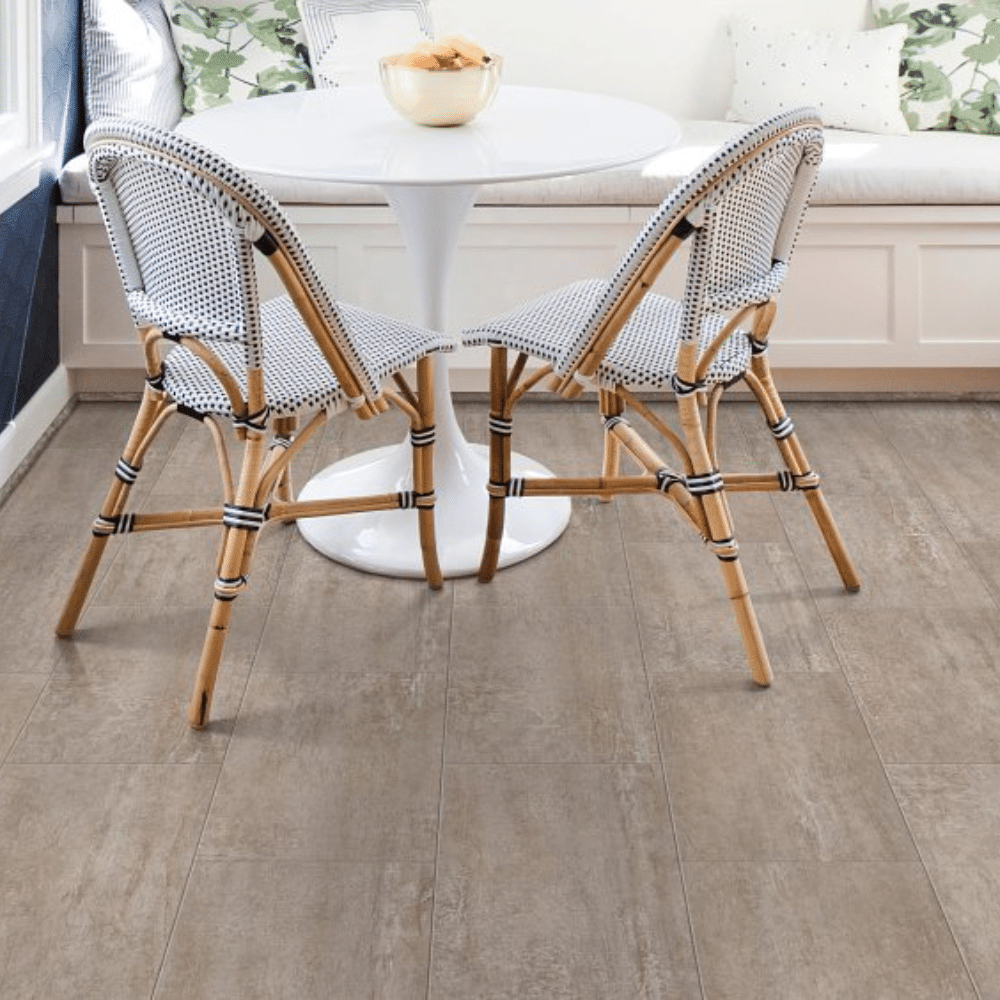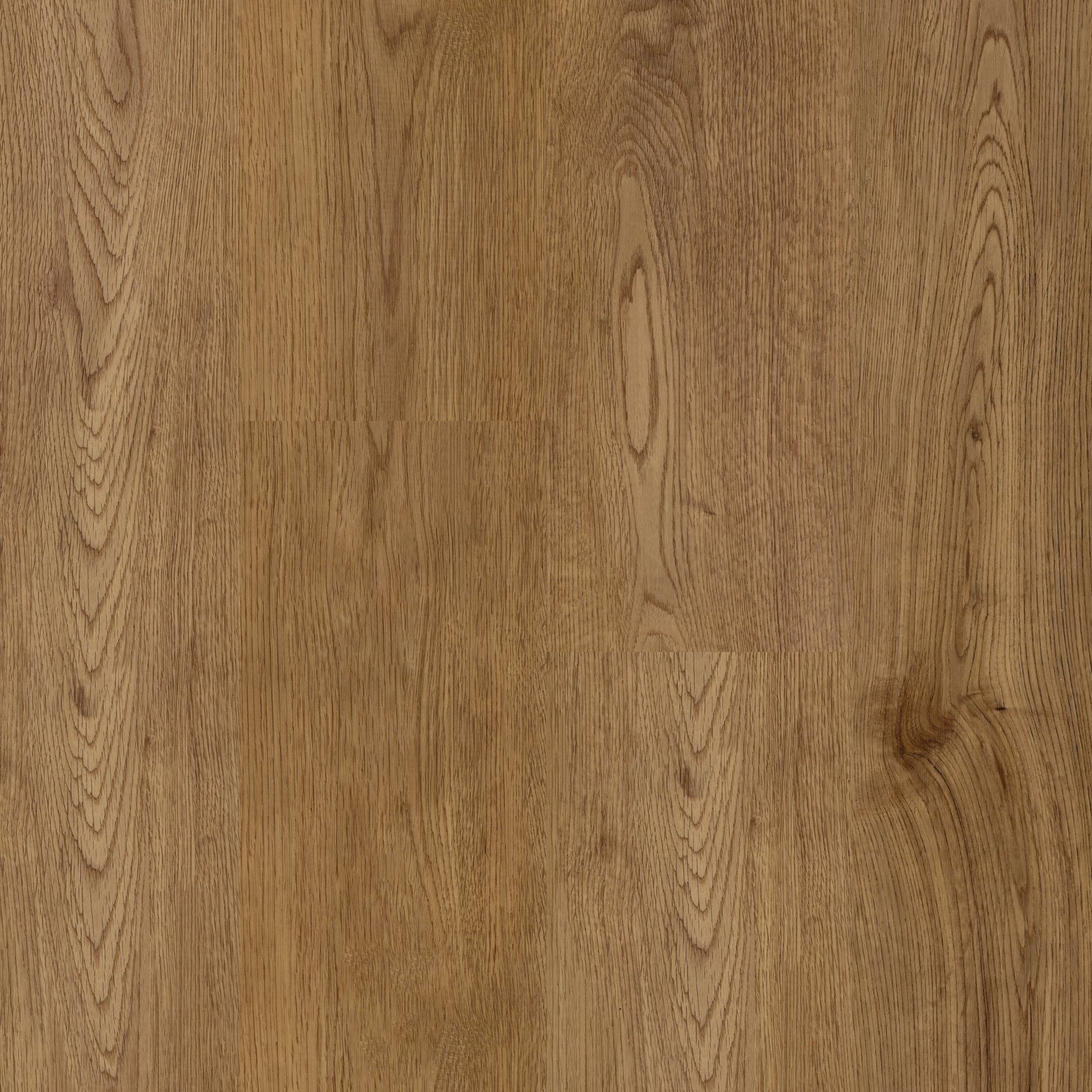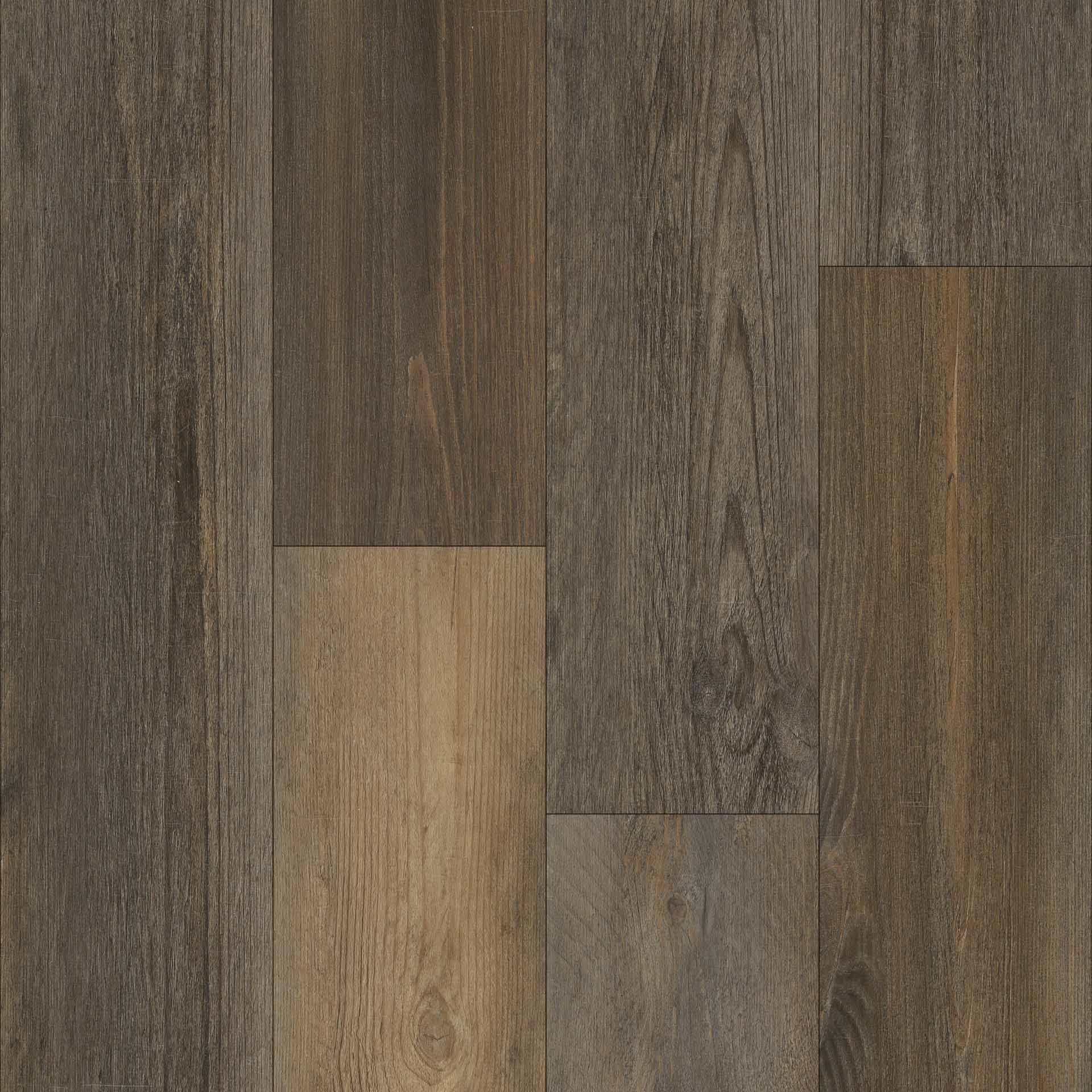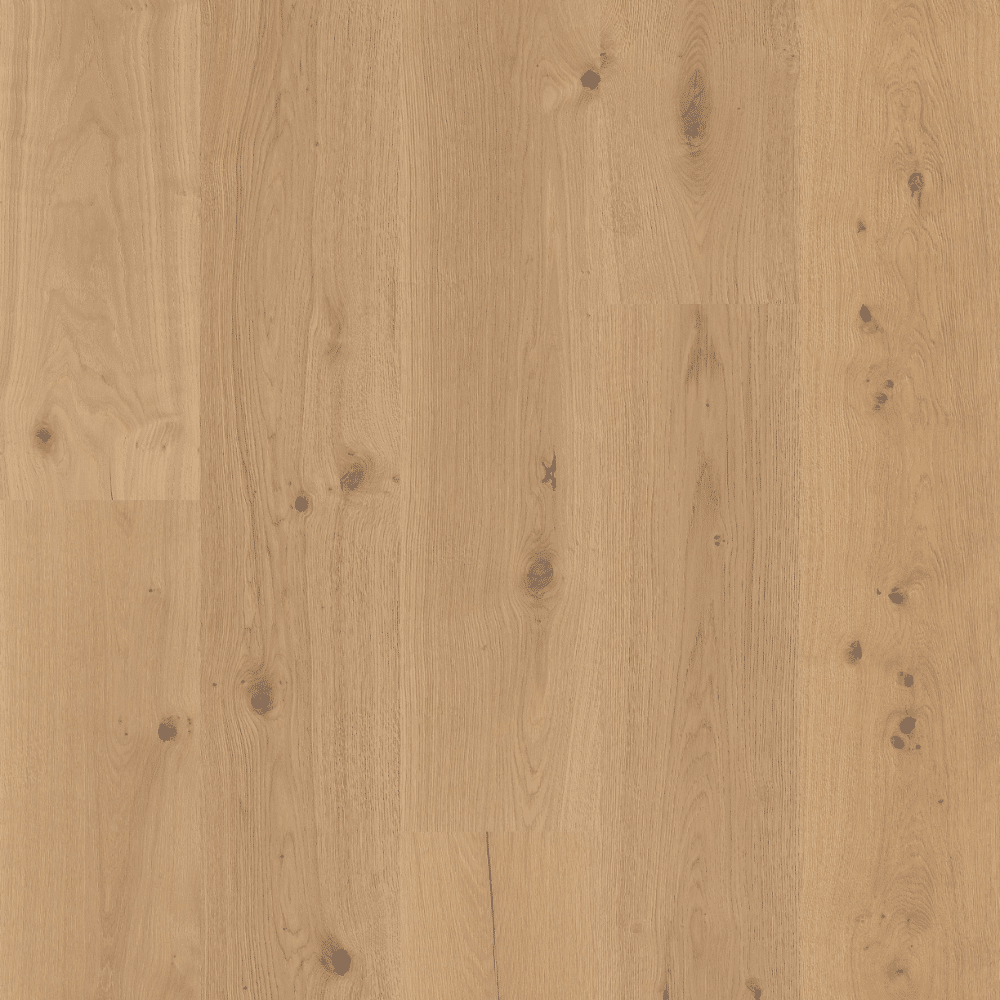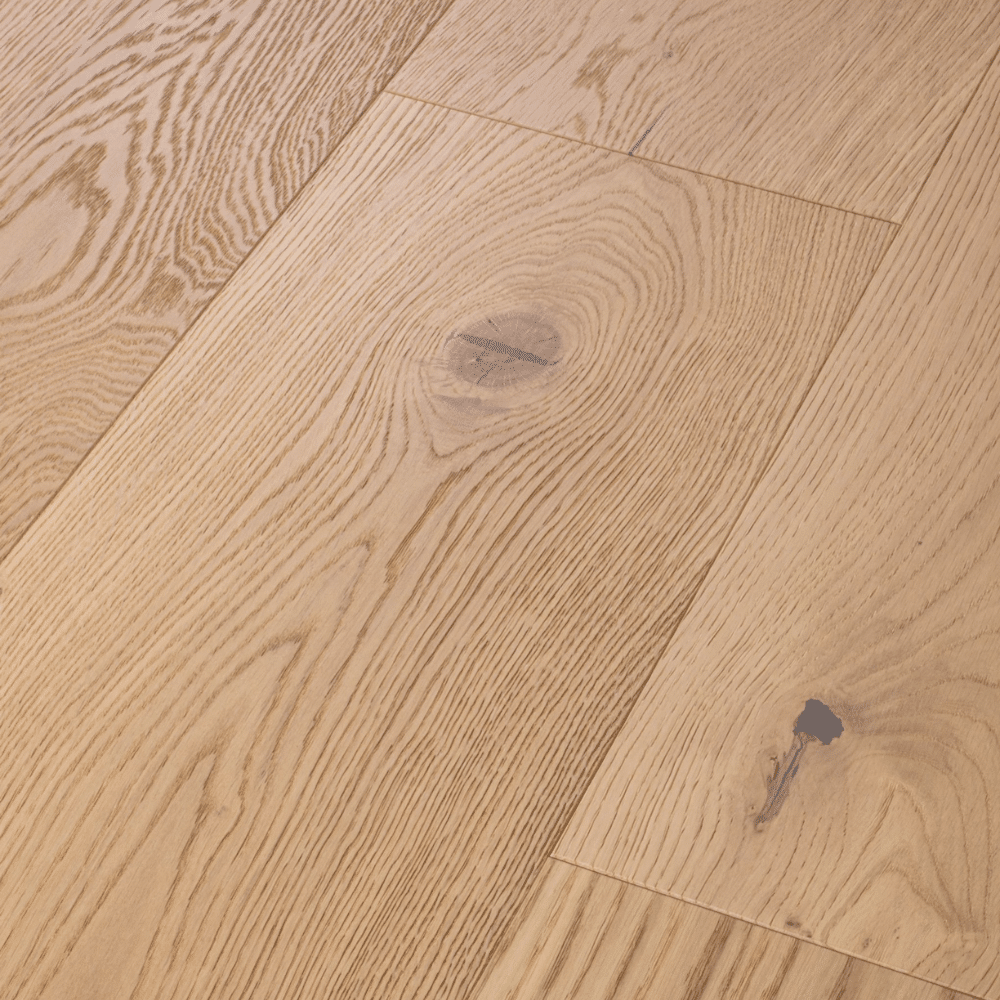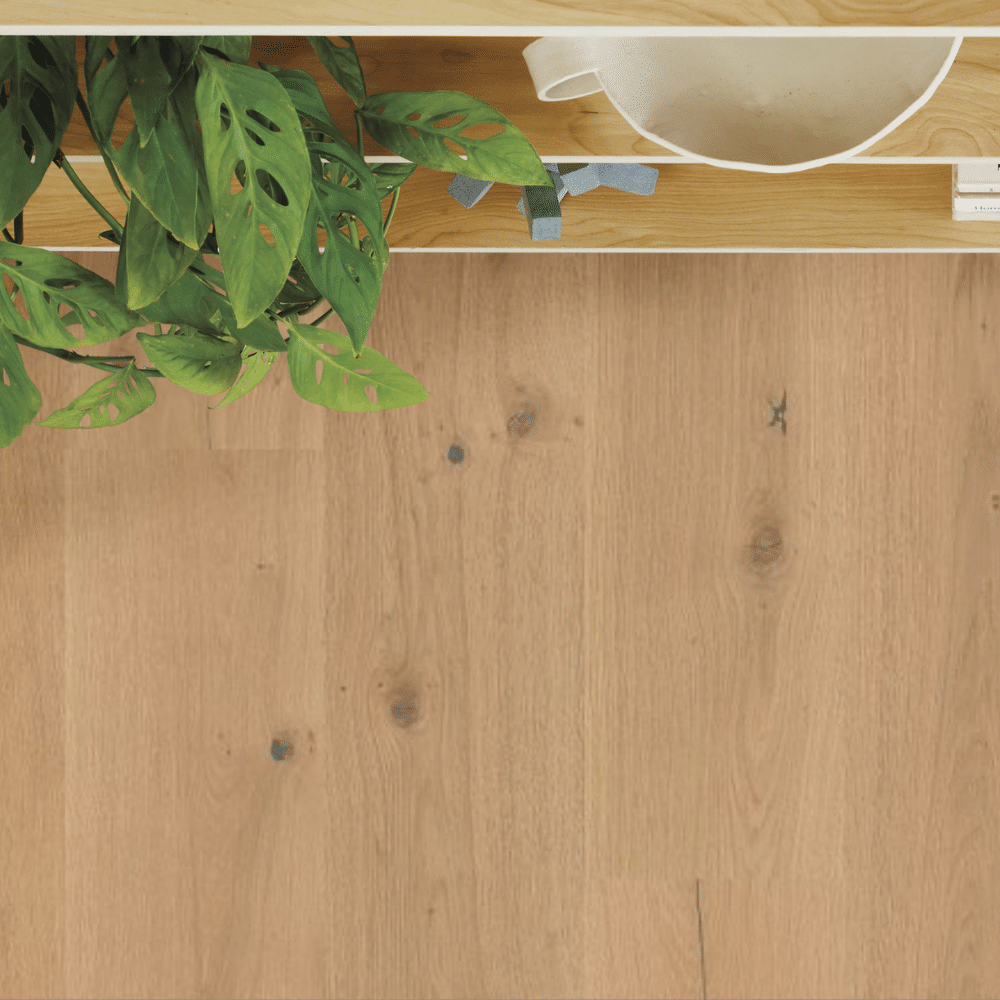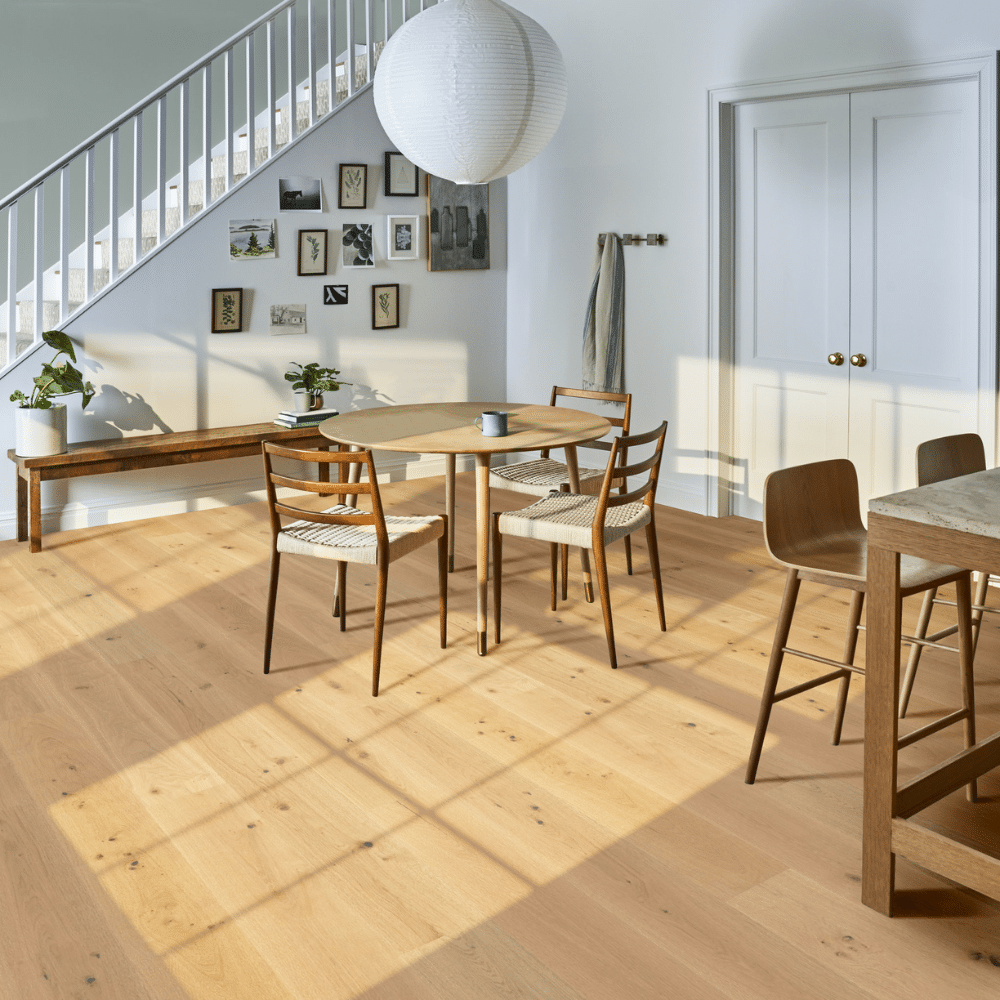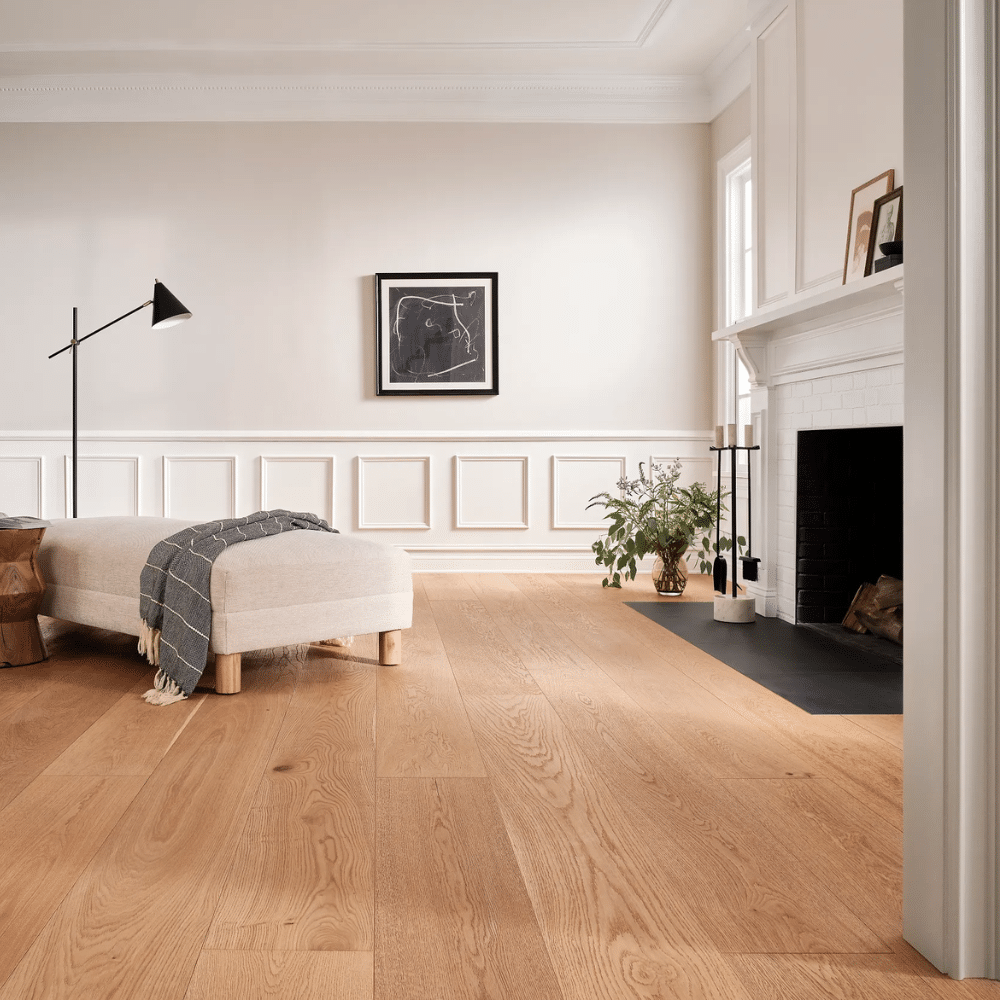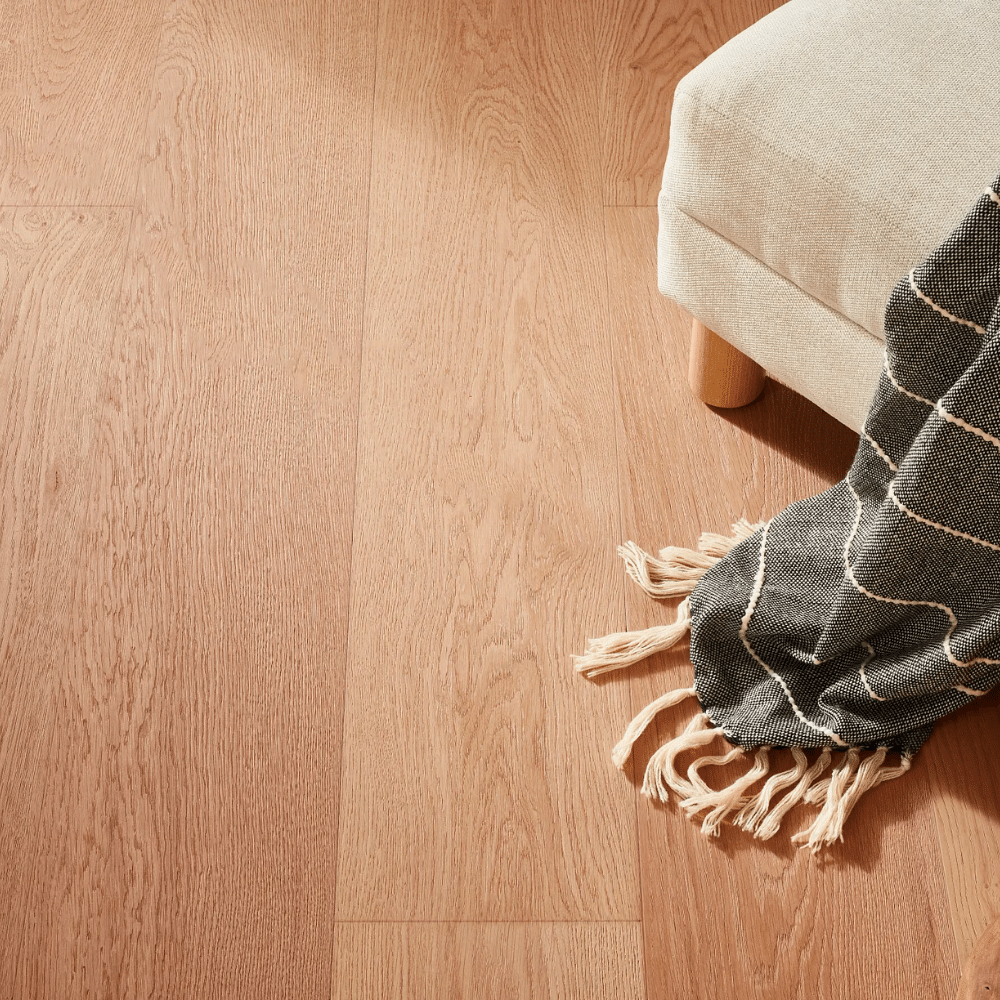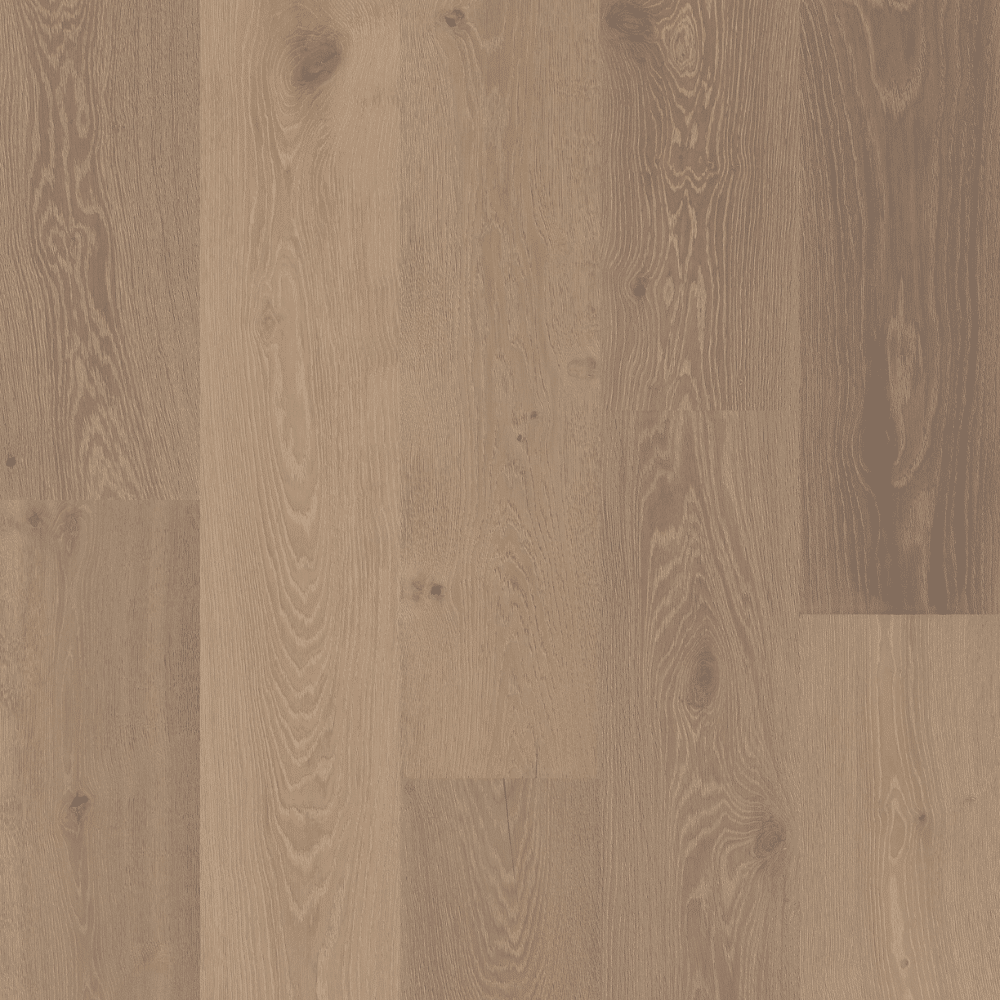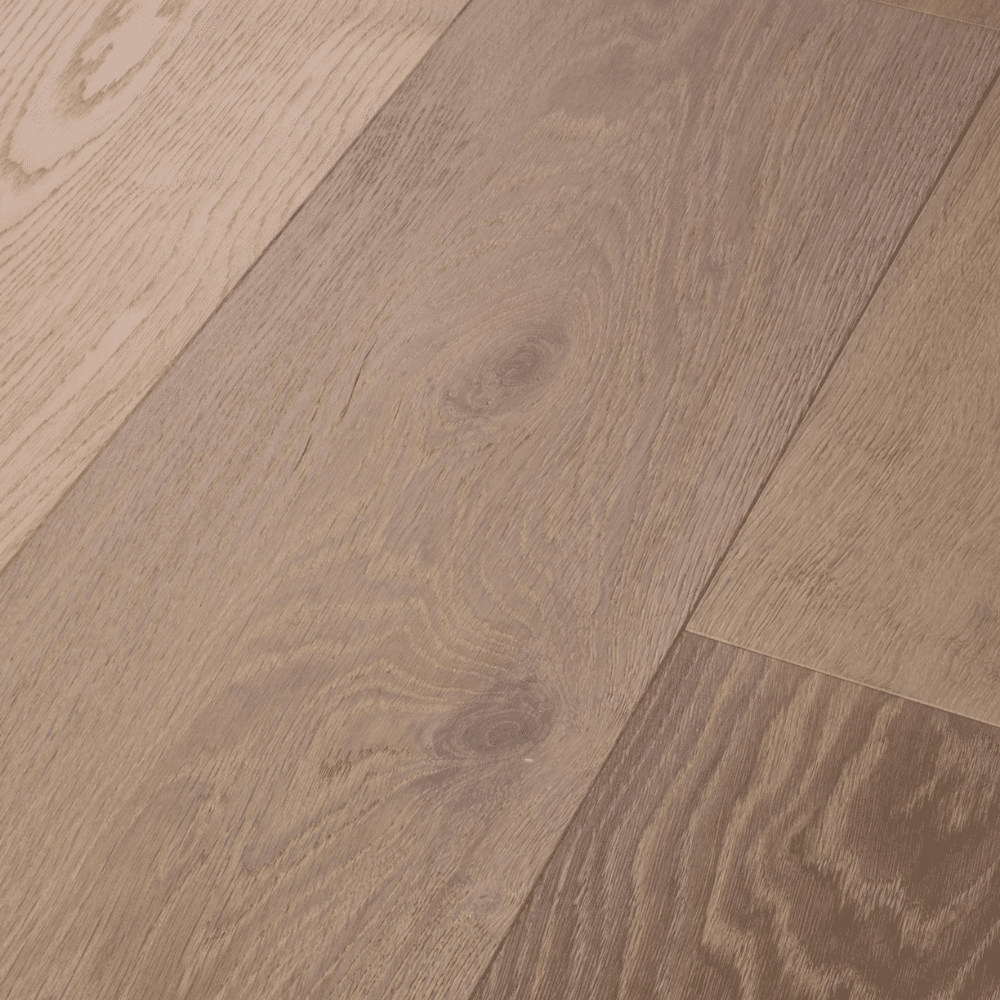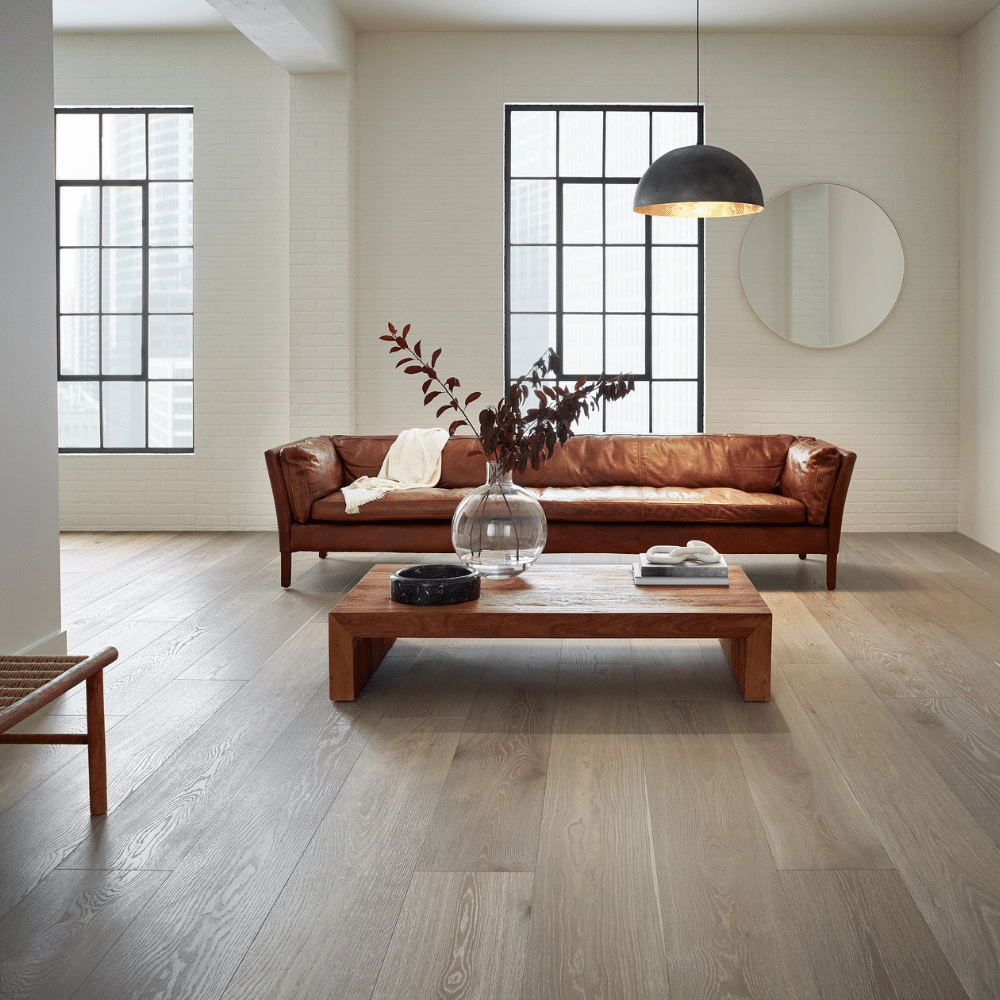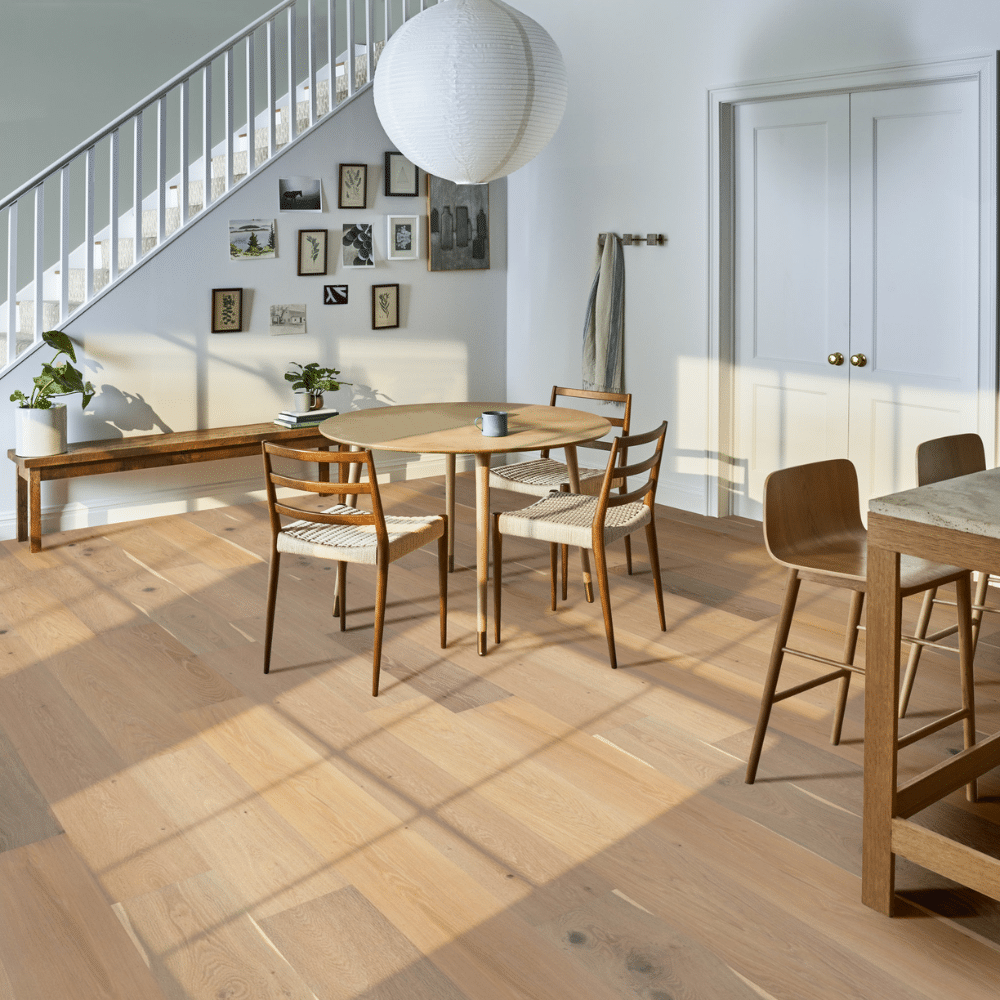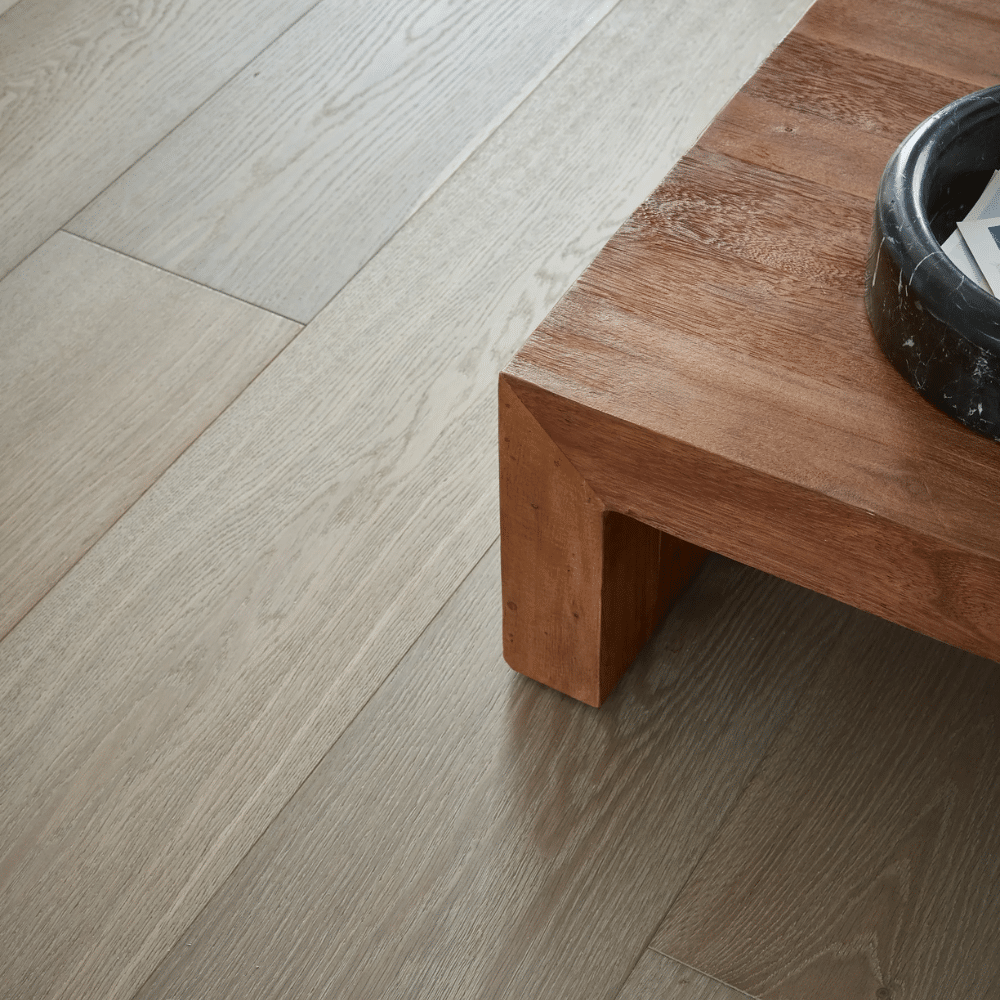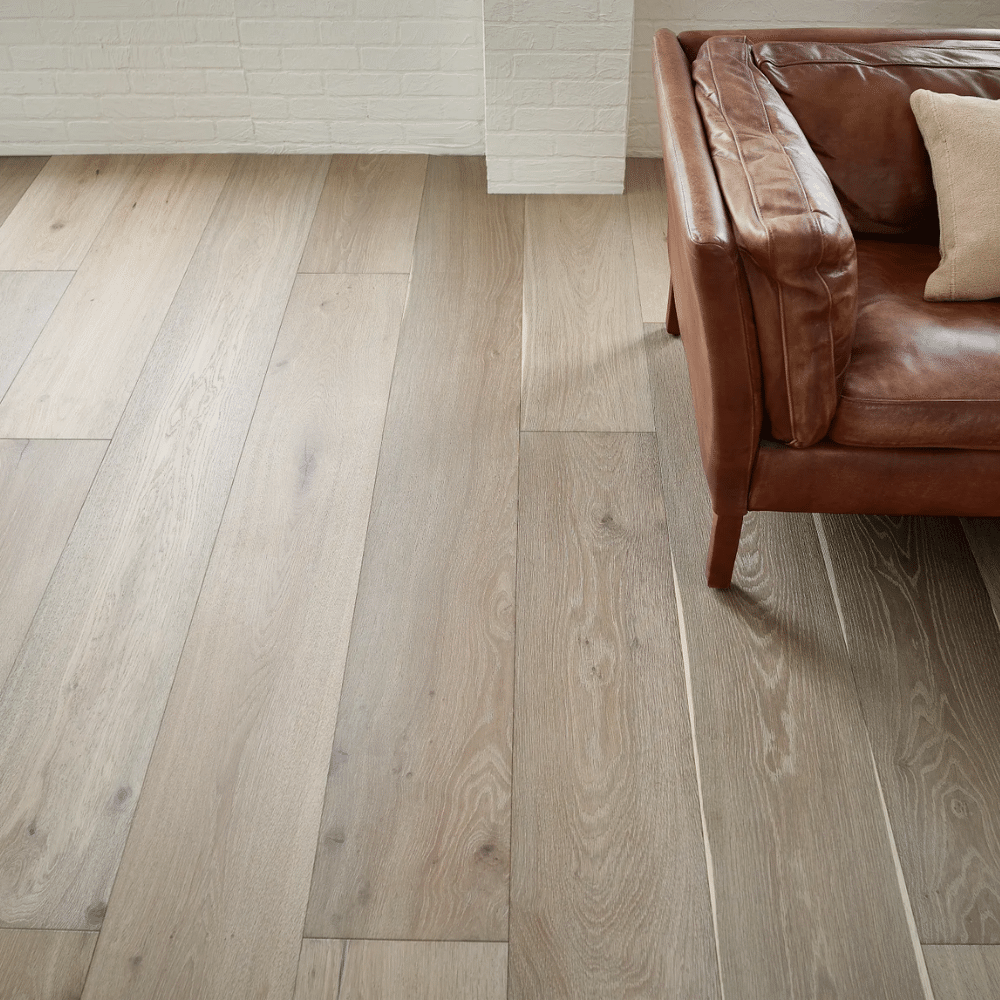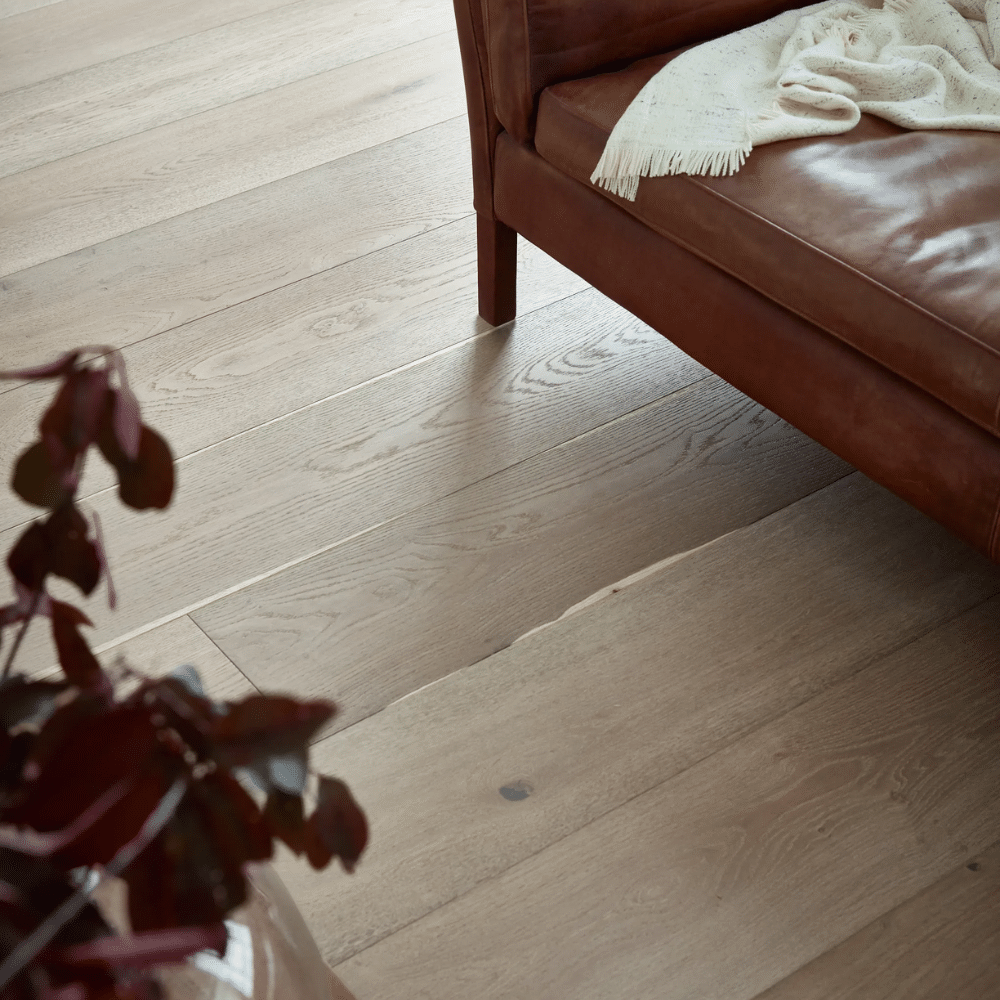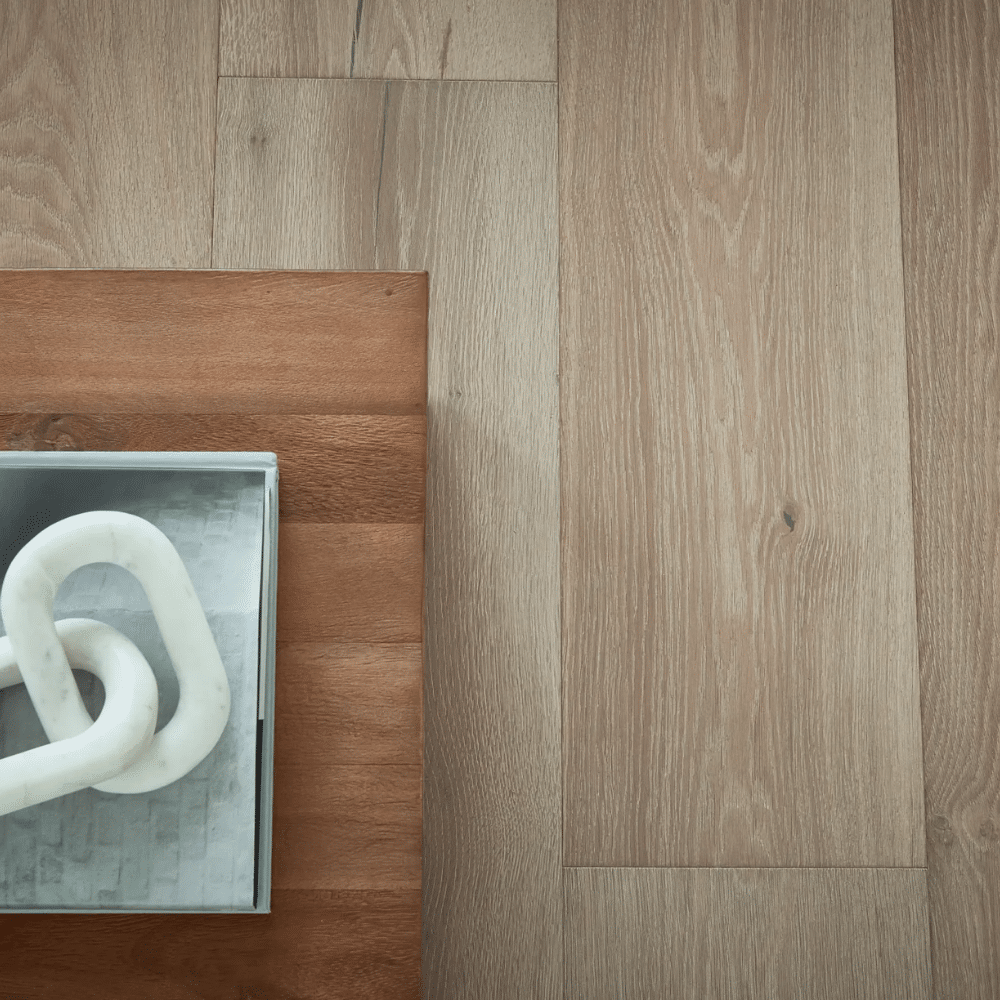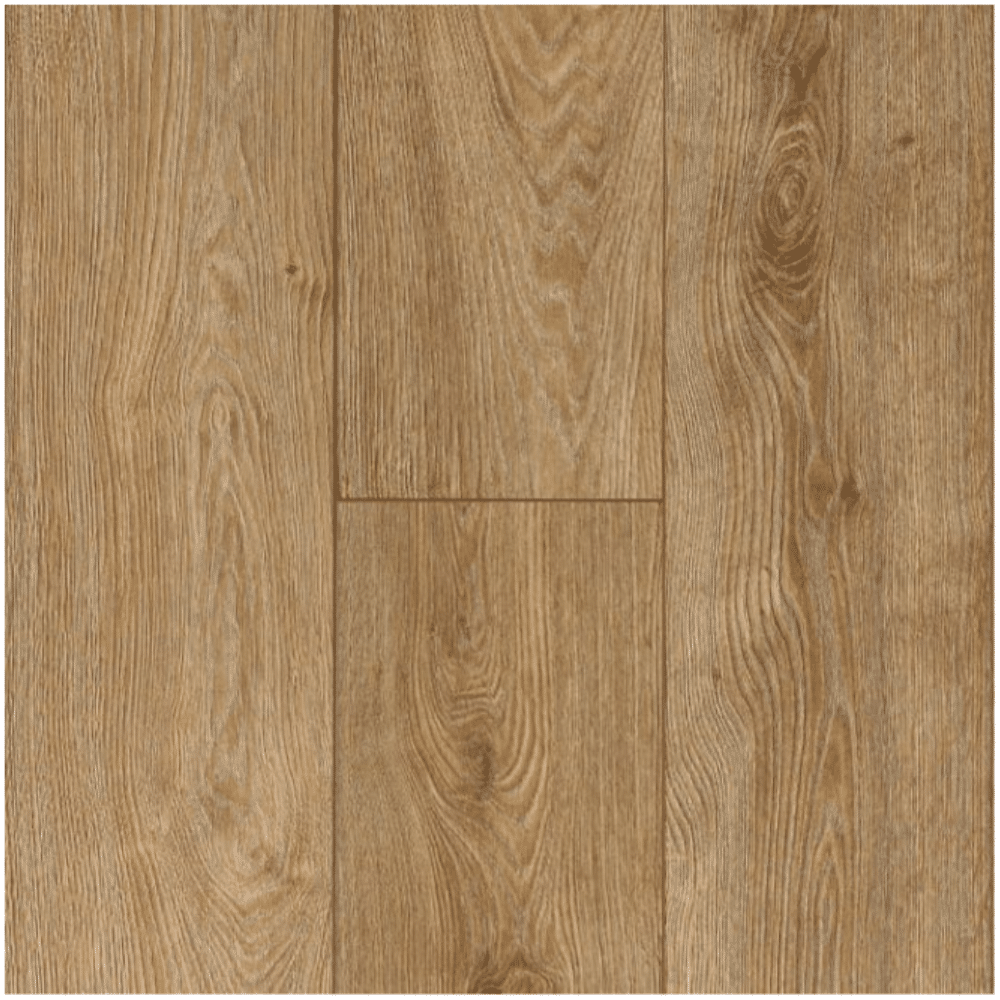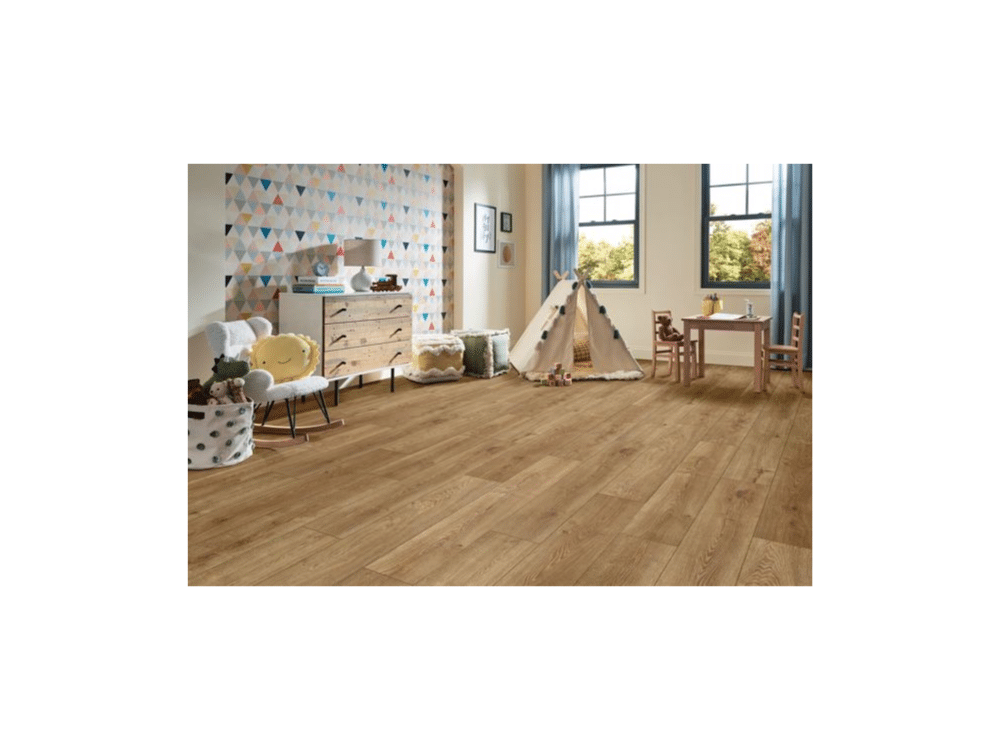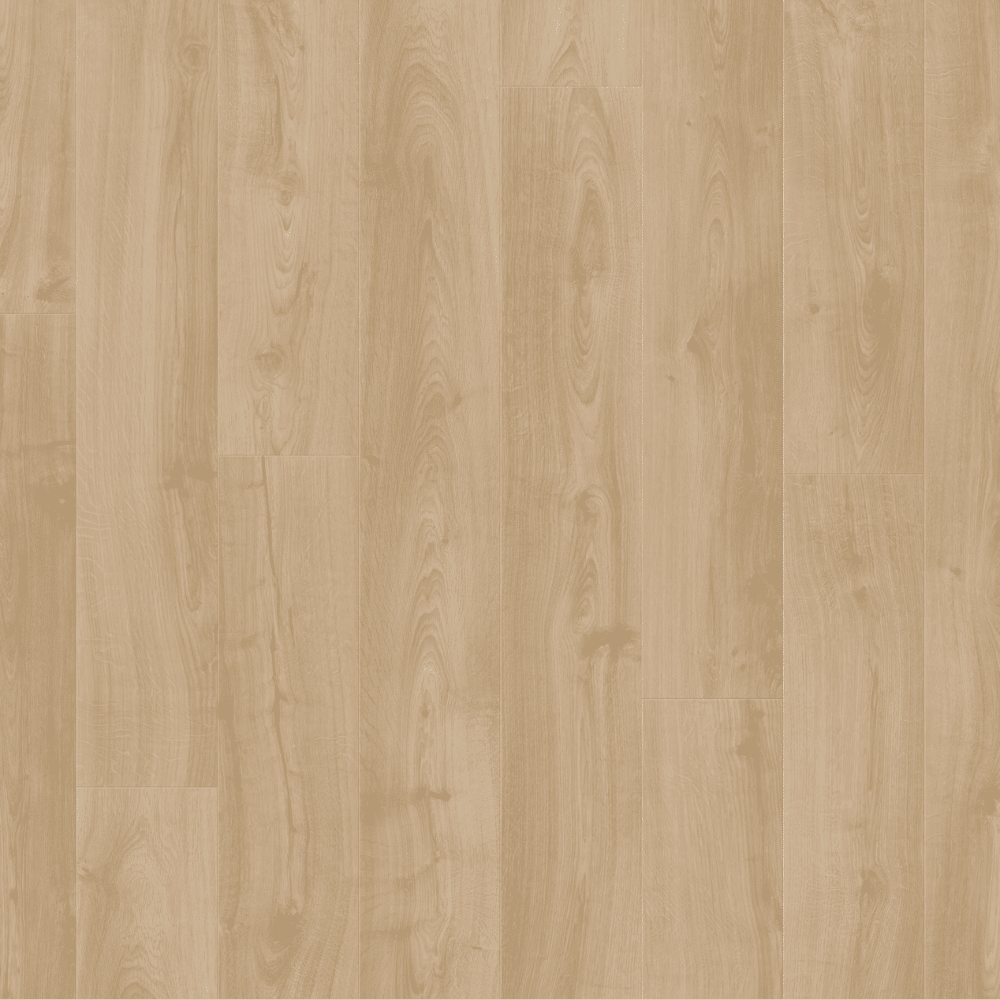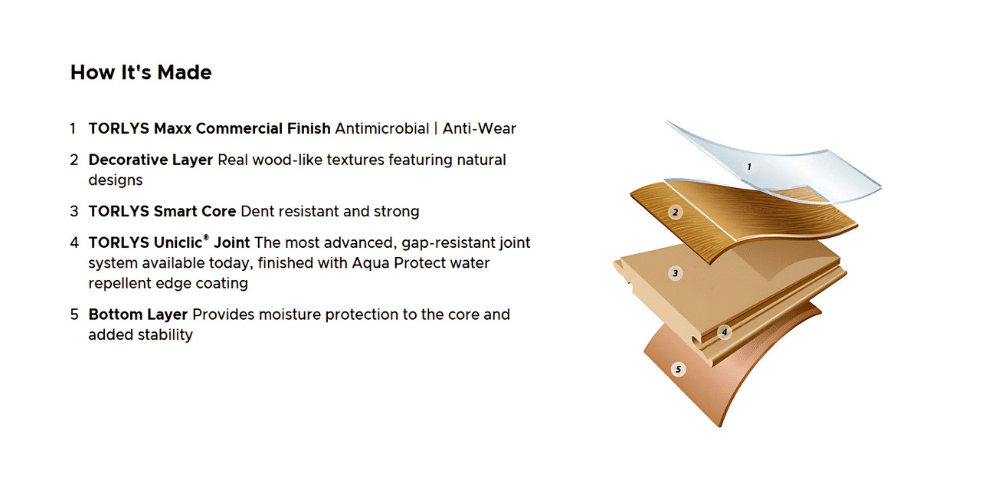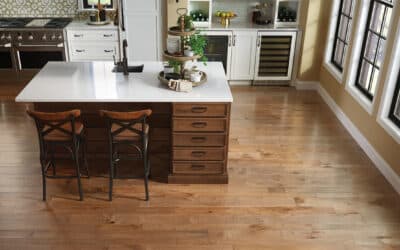Installing flooring over a concrete slab is common and not too difficult, but there are some considerations to make. Concrete retains moisture, so a moisture barrier should be laid before installing most types of flooring.
In terms of performance, what you get from luxury vinyl laid over concrete will be different long-term compared to if you lay engineered hardwood. Which is best for your home depends on the room conditions and your specific flooring needs.
Keep reading to discover the best flooring over concrete slab, our top picks of flooring to install over concrete subfloors, plus tips for installing any type of flooring over concrete.
What is the Best Flooring to Put Over a Concrete Slab?
The best flooring to install over a concrete slab is luxury vinyl, laminate, engineered hardwood, or tiles (including luxury vinyl tiles, porcelain, ceramic, or stone).
Carpet can be installed over a concrete slab, but it leaves room for potential problems, mostly in terms of its moisture resistance.
Hardwood flooring shouldn’t be installed directly over a concrete slab due to the risks of moisture exposure (which can cause severe damage).
However, it can be done if you’re willing to prepare the subfloor properly, such as by creating a plywood subfloor over concrete and installing hardwood using a glue-down or nail-down method.
Engineered wood is the better option over hardwood, as it can be installed directly over concrete in multiple ways, including as a glue-down, floating floor, click-lock, staple or nail-down floor.
Engineered wood offers a similar aesthetic without the extra work or potential for problems. It also doesn’t need to be acclimated before installation (like hardwood does).
Top Picks: Best Flooring to Install Over Concrete
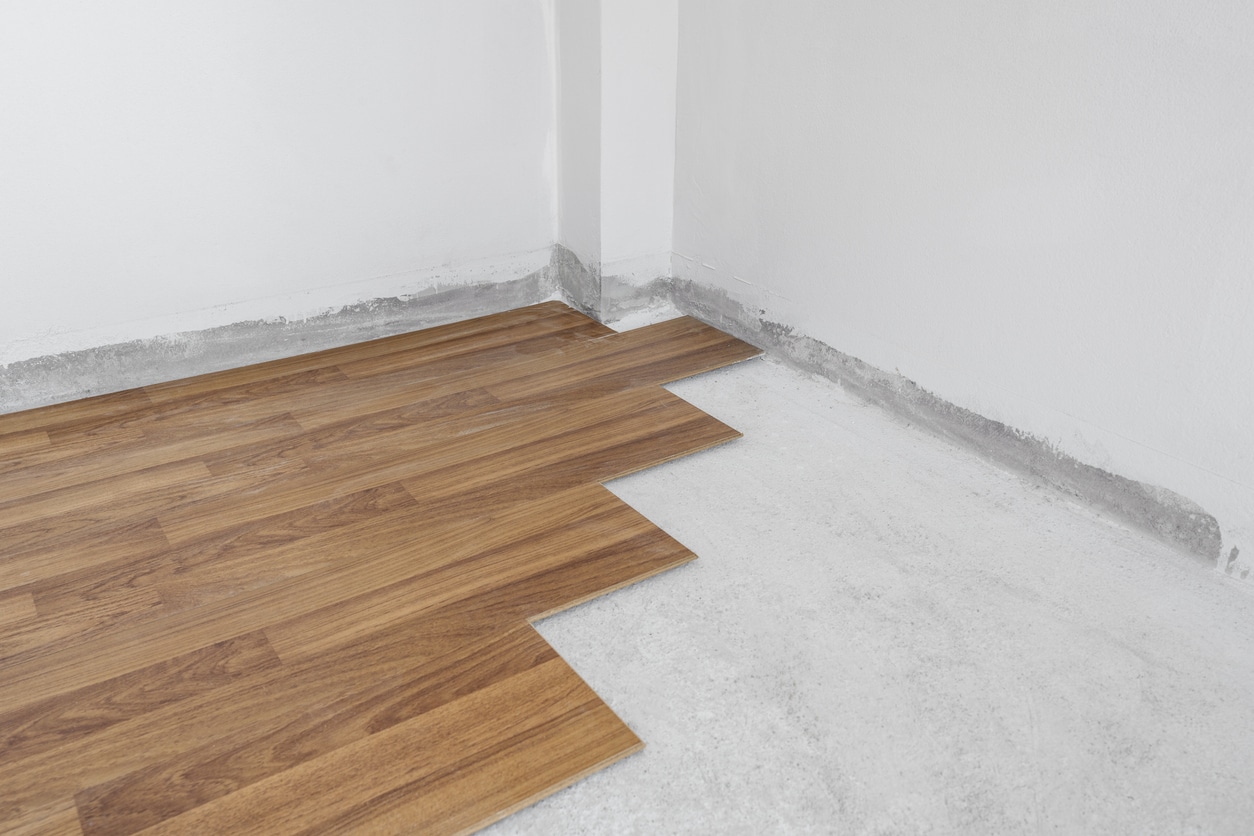
The best flooring to install over concrete should have suitable characteristics. For example, it needs to have the following:
- Good moisture resistance – Concrete retains moisture, so the floor is likely to be exposed to more moisture compared to a wood subfloor
- Durability – All flooring should be durable, particularly in high-traffic areas (which is where a concrete subfloor is usually found)
- Comfort – Concrete is hard, so choosing a softer floor can make the room more comfortable, particularly if it’s in the home (rather than in a basement or garage)
- Insulation – Concrete slabs are also cold, so a floor with good insulation can make the room warmer, particularly if it’s unheated
- Practicality – Flooring in any room should be practical to suit the environment, so it’s important that the floor chosen can withstand the intended use
Explore our top picks of flooring to lay over concrete and the performance each type of flooring offers.
Luxury Vinyl Tiles
Luxury vinyl tiles (LVT) are a good choice for installing over concrete. They’re easy to lay, affordable, and offer good moisture resistance.
When luxury vinyl has a pad attached (like the options shown), it can be installed directly over concrete with no need to add any underlay (unless you want to further soundproof or insulate the room).
LVT is also warmer and more insulated compared to porcelain or ceramic tiles, which can make it a preferable choice for kitchens, laundry rooms, or basements to make the area feel more homely.
Luxury Vinyl Planks
For similar reasons to luxury vinyl tiles, luxury vinyl planks (LVP) are another great choice of flooring over concrete. It appears similar to laminate, but is easier to lay and has a textured surface to mimic real wood floors.
The thing to remember with all luxury vinyl is that it can be dented if heavy items are left on the floor for long periods, or if anything sharp meets the surface (like stones under shoes or sharp furniture legs).
Using felt furniture pads under particularly heavy or sharp items can help avoid any long-term, irreversible damage.
Engineered Hardwood
Offering a similar aesthetic to hardwood floors, engineered hardwood is the best choice of floor over a concrete slab when you want a strong floor with all the beauty of real wood.
Engineered hardwood has a real wood top veneer layer with a high-density fiberboard or plywood core. This makes it strong, moisture-resistant, and resilient against temperature fluctuations.
Like hardwood, engineered wood is one of the most long-lasting types of flooring. It can withstand heavy foot traffic and last for decades with proper care and maintenance.
Laminate Flooring
Laminate flooring is affordable, moisture-resistant, and highly resilient, making it suitable for laying over a concrete subfloor. Available as a floating floor, it’s easy to lay over concrete.
One of the biggest benefits of laminate is that it’s difficult to scratch and it won’t dent under the weight of heavy furniture, which is why it’s a good choice for busy or high-traffic areas of the home.
FAQs
What is the Cheapest Flooring Over Concrete?
The cheapest flooring to lay over concrete is a peel-and-stick floor, like carpet tiles or sticky vinyl. Proper preparations must be made to ensure these floors stick to concrete, like ensuring it’s free from dirt and moisture.
However, these floors won’t last long, particularly if the room gets hot, damp, or humid. Affordable alternatives like luxury vinyl and laminate flooring are more durable and long-lasting.
What is the Warmest Flooring Over Concrete?
Carpet is the warmest type of flooring you can get. When laid over concrete, it can insulate the room and make the floor feel significantly warmer to walk on (compared to wood flooring or tiles).
Glue-down cork flooring is also a warm floor to lay over concrete, but the aesthetics you get from cork flooring are quite different compared to other options (like laminate or luxury vinyl).
There is a risk when laying carpet or cork flooring over concrete in a basement, garage, or laundry room, as it can lead to mold or mildew. Laying a moisture barrier underlayment can help prevent this.
Luxury vinyl or laminate is warmer than laying tiles over concrete, but not as warm as cork or carpet. Yet these hard floors are easier to manage and less likely to damage from moisture exposure, which is why they’re often the preferred choice.
Can You Put Vinyl Flooring On Uneven Concrete?
No, you shouldn’t lay vinyl flooring on an uneven surface. Preparation is key when installing luxury vinyl if you want the floors to last. You can use a self-leveling compound to create a smooth, even surface.
If the concrete is only slightly uneven, you may not need to level the floor before laying new flooring on top. Using glue-down luxury vinyl is often a good idea to hide slight unevenness in the concrete subfloor.
However, a glue-down vinyl plank floor can make the surface feel less cushioned than if you install a floating floor.
What Underlay is Best For Uneven Concrete Floors?
It’s best to try to level concrete floors as best as possible before laying any flooring. Even with the best underlay, the flooring can still warp, bend, or crack over time.
If the concrete is only slightly uneven, this shouldn’t matter too much. Make sure to lay a class 1 moisture barrier as an underlay over concrete. This protects your floor from the porosity of concrete.
You can then install a cork underlayment, foam, felt, or rubber underlayment over concrete. Learn more about the best underlayment for different floors.
Find Your Style Today
At Panel Town, we specialize in luxury flooring, from hardwood and engineered wood to luxury vinyl and waterproof laminate.
Find your style today or explore our top picks of luxury vinyl that looks like wood, or our best kitchen and bathroom flooring.
Need inspiration? Try our flooring visualizer for free today to see what colors or species of flooring look best in your home.
